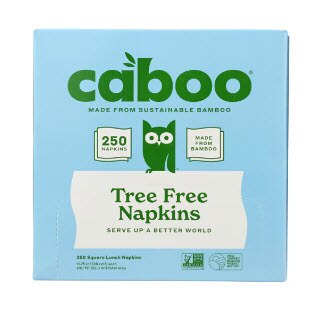While the concept of “zero waste” may be ambitious, we can support people and employers in becoming more conscientious about waste reduction. Instead of relying on disposables, the concept of zero waste aims is about minimizing waste generation at its source. This involves rethinking our consumption patterns, promoting mindful purchasing, and embracing a culture of reuse and repair.
 By reducing the demand for new products, we can minimize the environmental impact of extracting natural resources. This helps protect marginalized communities which are disproportionately impacted by mining and other extraction practices, while also promoting a more sustainable and equitable distribution of resources.
By reducing the demand for new products, we can minimize the environmental impact of extracting natural resources. This helps protect marginalized communities which are disproportionately impacted by mining and other extraction practices, while also promoting a more sustainable and equitable distribution of resources.
If you embrace an environmentally conscious lifestyle, you may have already incorporated sustainability practices into the management of your home and garden. You may also “think green” when it comes to back to school time for your kids, or strive to maintain an eco-friendly household even when the purse strings are tight.
How about sustainability at work?
If you are “green-minded” at home, how about work? It makes sense when you consider that the average U.S. worker will typically spend one-third of his or her life on the job. That equates to about 90,000 labor hours over the course of your lifetime! Additionally, 31 percent of full-time employees reportedly use weekend time to catch up on their workload. All told, 94 percent of US service industry professionals report working more than 50 hours per week.
All of this underscores the importance of setting zero/low waste goals for the workplace, a comprehensive approach that challenges the current “linear” waste management paradigm of “take, make, and dispose.” Instead, these goals represent a brilliant new model for sustainability and resource efficiency: a circular economy. This concept starts with waste reduction at the source, which involves rethinking our consumption patterns, promoting mindful purchasing decisions, and embracing a culture of reuse and repair in which resources are valued and used for as long as possible.
So, how much impact can you really have at work? More than you might think, as it happens. Check out the following ways in which we can make a positive impact individually, plus suggestions for eco-minded companies:
Embrace an eco-breakfast
These days, as so many people eat one or more daily meals at work, breakfast on-the-go−which is usually encased in paper and plastic−has become normalized. And yet, preparing food at home is not only more sustainable and less wasteful, but also usually cheaper, tastier, and more nutritious. Here are some delicious A.M. ideas to “green” your morning work zone:
- Mango Overnight Oats Bowl
- Vegan Chocolate-Banana Scones
- Orange-Cinnamon Rice Pudding
- Carrot Cake Waffles with Creamy Maple Drizzle
- No-Bake Gluten-Free Granola Bars
- Vegan Breakfast Burritos
- Peach & Almond Overnight Oats
- Vegan Cream Cheese & Fruit Tortilla Wrap
- Sunflower Butter & Oat No-Bake Energy Bites
- Vegan Chocolate Chip Banana Bread
Establish the zero/low-waste lunch
A recent survey conducted by Opinium Research found that 76 percent of non-remote corporate workers regularly lunch at their desk. For many people, that means takeout from nearby food trucks or cafés. Unfortunately, this can be costly, often wasteful, not always healthy, and usually includes packaging waste.
On the other hand, preparing a homemade lunch for work has numerous advantages, potentially saving you money, allowing you to control your food quality, and reducing packaging and food waste. Nor is it hard to do once you get in the groove of advanced preparation. You might start with a few options to rotate, expanding from there. Remember to pack along your Caboo Tree Free Bamboo Napkins and Repurpose Compostable Fork, Spoon & Knife.
As for your menu choices, healthy plant-based fare will help to keep your energy and mood stable throughout your workday afternoon. For a bit of tasty inspiration, consider these ideas.
- Kale & Goji Salad with Turmeric-Infused Ginger Dressing
- Summer Quinoa Salad With Avocado & Mango
- Vegan Pinwheel Sandwiches
- Make Healthier Lunches With These 8 Unique (Non-White Flour) Wraps
- Dairy-Free Mexican Corn Salad
- Mediterranean Chickpea Salad with Roasted Sweet Pepper Dressing
- Smoky Chipotle Sweet Potato Salad
- Vegan “Tuna” Salad
Expand office recycling
This green practice is fundamental to reducing waste at work. By now, companies of all sizes have incorporated basic recycling programs, which help ensure that materials that would otherwise be thrown away are collected and safely processed. Recycling can help prevent the waste of potentially useful materials, reduce greenhouse gas emissions, and minimize air pollution from incineration and water pollution from landfilling. Most conscientious workplaces now recycle paper, plastic, food/ beverage cans, flattened cardboard, paperboard and glass. You may want to see if you spot additional areas for improvement to share constructively.
Encourage upcycling at work
Upcycling might be referred to as next level recycling. This model is about giving new life to items that would otherwise be discarded. By transforming waste materials into valuable resources, we reduce the need for raw material extraction while conserving energy. One cool way companies can upcycle in the workplace is with furniture.
Americans throw out 12 million tons of furniture annually, and a major culprit is the business sector. According to the Environmental Protection Association (EPA), 80 percent of this waste ends up in increasingly scarce landfill space, leading to even more serious sources of pollution. Instead, many of those discarded pieces could be upcycled and/or repurposed into collaborative workspaces, additional storage, or team building creative projects. Businesses can also convert old desks into shelves or storage units, turn filing cabinets into planters, and employ old partitions as whiteboards or bulletin boards.
For companies open to rotating and reusing old furniture, it can be easy and fun. Items can often be rejuvenated with a simple coat of fresh paint, or by moving them to a different location, reducing the need for new furniture, extending the life of older pieces, and adding functional value to the workspace. If a workplace can no longer use certain materials, they can be donated to shelters, churches, schools and art studios as raw materials for artistic, architectural, theatrical or creative/design projects.
Promote workplace composting
If you have concerns about food waste accumulating at your office, composting at work is a great solution, as this allows for organic waste to be returned to the soil as fertilizer, closing the disposal loop and promoting regenerative agricultural practices. Companies all over the country are already composting in their offices. In San Francisco, for example, the Mandatory Recycling and Composting Ordinance requires every business in the city to “properly separate recyclables and compostables and keep them out of the landfill.” If they can do it, you can too! With a simple system that fits your workplace, composting need not be costly, messy or time-consuming. This easy guide can help you get into the swing of composting at work.
Making a larger difference
Just as we began with food as the optimal starting place to address waste both at home and on the job, we will close on the same subject. It is, in fact, so important that we need ethical companies to get on board as well, not just us as individuals. When you consider that 38% of food produced in the U.S. is thrown away, this also equates to 229 million tons of surplus available food going unsold or uneaten every year, in addition to food left unharvested on farms. At the same time, 42 million Americans, which is one in eight of us, struggle with hunger on a daily basis. This massive inequity is a wrong we can strive to make right together.
Kroger’s Zero Hunger | Zero Waste is a social and environmental impact plan at work to change those daunting numbers. This action plan reflects the commitment to build a more resilient, equitable and sustainable food system that improves access to affordable, fresh food for everyone–for generations to come. Learn more about our progress in Kroger’s 2023 ESG Report.



